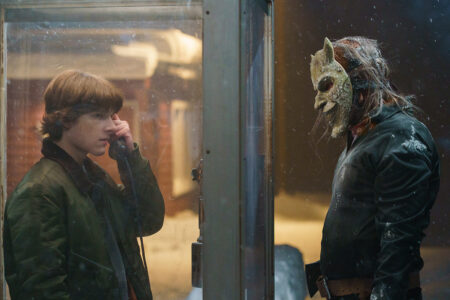Celebrating 50 years with MEO
State House Speaker Joe Souki remembers that nearly 50 years ago, as chief executive officer of the fledgling Maui Economic Opportunity in 1966, he bought a $9,000 Volkswagen van to begin the nonprofit’s transportation program.
The van provided transportation to disabled people, the elderly and children of the federal Head Start low-income preschool program. Now, almost 50 years later, MEO has a fleet of 86 buses, some costing upwards of $125,000 each.
The organization still serves the same segment of the community, but it also assists thousands of others with transportation and 70 other programs and projects that include early childhood and youth services, business development, senior club coordination, prisoner reintegration and rental subsidies.
“MEO literally served thousands of people,” Souki said in an email interview from the state Capitol. MEO continues to do “a wonderful job, serving the poor through a multitude of programs.”
Tonight, MEO will celebrate its 50th anniversary. A sold-out “Dancing with Our Stars” celebration will feature dancing couples from Maui’s prominent community members, including Mayor Alan Arakawa. It is also a fundraiser for the organization.
MEO was chartered March 22, 1965. It’s a private nonprofit Community Action Agency. It was organized under the Economic Opportunity Act of 1964 initiated by President Lyndon B. Johnson to strengthen and coordinate efforts to eliminate poverty by providing opportunities for education, employment and training, transportation and other areas to help people help themselves, according to MEO.
“We’re excited, and we are very appreciative of the community’s support and our partners and everyone that has contributed to the last 50 years. We wouldn’t be here if it weren’t for everyone else. MEO can’t do it alone,” said MEO Chief Executive Officer Lyn McNeff.
McNeff is latest in a line of well-known leaders at MEO. Its first was Elizabeth “Jonsey” Medeiros, followed by Souki, Paul Pladera, Gladys Baisa and Sandy Baz. Baisa is in her fifth and last two-year term on the Maui County Council, and Baz is the county budget director.
McNeff said the organization has been able to thrive and survive over the years because it continues to be “relative to the community” and is able to assist people where help is needed.
“If somebody else is filling a need, it’s not our job to do that,” she said.
An example of MEO being relative to the community’s needs is the organization starting its Being Empowered and Safe Together, or BEST, prisoner reintegration program after Maui Community Correctional Center officials spoke about having a “revolving door” of ex-felons continually returning to the facility, McNeff said.
The BEST program teaches community reintegration skills to those nearing release from jail. The program includes anger management and pre-employment training as well as cognitive skills restructuring.
And on Molokai, where gas prices are high, MEO has a shuttle that helps people from east and west Molokai to get into Kaunakakai town to run errands. The shuttle originally started as families involved with the Head Start program needed transportation into Kaunakakai for services.
MEO also seeks out people or groups that need assistance through its board of directors who represent the nonprofit’s constituents. The board includes government officials and business community representatives.
McNeff said the board’s makeup is mandated by the federal government.
MEO’s annual budget, now $19 million, has increased from more than $1 million nearly 50 years ago. Funding comes from grants and from other sources, including federal and local governments and private entities.
McNeff said $10 million comes from Maui County.
“This county is very generous to the residents,” McNeff said, noting MEO tells its clients to be proud of what they have because “someone paid it forward to you.”
While the other counties in Hawaii also have Community Action programs, with Honolulu’s being the largest, MEO is known widely because it provides a variety of programs that other action groups do not, McNeff said.
Its departments and programs include:
* Business Development Center, which provides small-business entrepreneurs with business plan training, credit assessment and micro-loans for startups and expansion.
* Community Services, which makes available employment training and job placement, Enlace Hispano (Hispanic Link), energy assistance and Hawaiian agricultural workshops.
* Early Childhood Services, which provides infant care and early childhood education.
* Transportation, which makes available rides for clients to the doctor, work, school, adult day care and shopping.
* Youth Services, which aims at prevention of underage drinking and substance abuse while teaching life skills and workforce preparation.
Under MEO’s umbrella program are 60 senior citizens clubs. One of them is the Lahaina-Honolua Senior Citizens Club, which celebrated its 45th anniversary at a luncheon on Thursday.
McNeff said the club has six 95-year-olds. She adds that the clubs are able to keep the seniors healthy and active because they’re a way for seniors to get out of their homes and be involved with the community.
Earlier this month, MEO moved its transportation department from its former 4-acre site in Kahului across from Sears at the Queen Ka’ahumanu Center to its new 10-acre transportation hub in Puunene. The move is the first of several phases for development of the transportation facility, including a bus wash.
MEO’s main offices are in Wailuku, behind the Cameron Center.
In remarking on what’s coming up for the agency’s next 50 years, McNeff said she hopes that, someday, MEO won’t be needed.
“Our goal is to put ourselves out of business. We are fighting the war on poverty.”
* Melissa Tanji can be reached at mtanji@mauinews.com.





